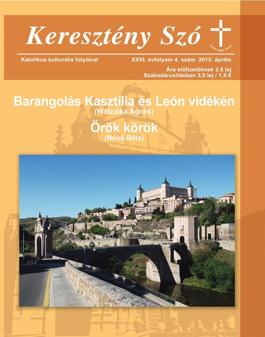
We kindly inform you that, as long as the subject affiliation of our 300.000+ articles is in progress, you might get unsufficient or no results on your third level or second level search. In this case, please broaden your search criteria.

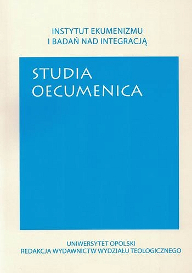
Although the encyclical of Pope Francis Fratelli tutti does not speak directly about ecumenism, the category of fraternity developed in it can and should apply in the ecumenical movement, especially in the grassroots contacts of Christians from different Churches. Top-down ecumenism, i.e. doctrinal dialogues and meetings of Church leaders, by themselves – although necessary – are not able to bring about an effective reconciliation of Christians living in different Churches and Ecclesial Communities. The hermeneutical key proposed by Pope Francis in the form of the category of the fraternity has a wider application than ecumenical relations. The article examines the determinants of this category and its possible application to the ecumenical movement. An example of the successful application of the idea of fraternity in the activities of the International Ecumenical Fellowship is also given.
More...
Od czasu Soboru Watykańskiego II oraz wydarzeń, które dokonały się po nim, jesteśmy świadkami bardzo mocnej obecności Ducha Świętego w Kościele. Momentem przełomowym było „wylanie Ducha Świętego” podczas wspólnej modlitwy Słowem Bożym profesorów i studentów z uniwersytetu w Duquesne w 1967 r. Od tego momentu, który określany jest jako pierwszy „chrzest w Duchu Świętym”, rozpoczął w Kościele katolickim proces formowania wspólnot odnowy. W niniejszym artykule zostanie przeprowadzona analiza różnego rodzaju zjawisk zarówno fizycznych, jak i duchowych, związanych z posługą charyzmatyczną. Punktem odniesienia będą dokumenty pastoralne wydane na przestrzeni ostatnich lat przez poszczególne konferencje episkopatów, jak również przez instytucje kościelne zaangażowane w nieustanne monitorowanie ruchów odnowy. Pozwoli to na ukazanie możliwości wypracowanych modeli pastoralnych przez biskupów poszczególnych krajów oraz ich analizę. Punktem wyjścia rozważań będzie ukazanie natury charyzmatów, określenie i przyjęcie poprawnego terminu dla rozumienia pojęcia charyzmatu, a następnie przeanalizowanie zjawisk towarzyszącym modlitwie charyzmatycznej oraz ich ocena teologiczna. Ostatnim elementem będzie próba wyjaśnienia kontrowersji oraz problemów, jakie występują w trakcie modlitwy charyzmatycznej zarówno w aspekcie teologicznym (duchowym), jak również psychologicznym.
More...
Katolickie Kościoły wschodnie ze względu na swoje zróżnicowanie obrządkowe wnoszą odrębny wkład w całościowe dziedzictwo chrześcijańskie. Każdy obrządek wschodni emanuje samodzielnym i autentycznym zbiorem cech liturgiczno-kultycznych, typowych dla określonego nurtu tradycyjnego. Posiadanie własnych przymiotów praktyki sakramentalno-rytualnej jest nieodłącznie związane z przywilejem działania Kościoła partykularnego i wpływa bezpośrednio na kształtowanie jego tożsamości. Jakkolwiek elementy zewnętrzne i obrzędowe w Kościele wschodnim spełniają rolę pomocniczą, lecz są one niezbędne i niezastąpione. Ich moc odziaływania przyczynia się najczęściej do pełniejszej integracji wspólnoty wiernych i jej zjednoczenia modlitewnego. Powoduje prawdziwe zespolenie tychże wiernych wokół idei jednego i rodzimego obrządku, który jawi się dla nich życiodajną siłą duchową. W artykule podjęto ważne aspekty formułowania się tożsamości obrządkowej w obrębie katolickich Kościołów wschodnich, wskazując zarazem na uwarunkowania duszpasterskie, które niekiedy wymuszają na wschodnich katolikach dostosowanie się do rodzaju eksperymentu obrządkowego.
More...
Kościół jako instytucja, ale i wspólnota wierzących, jest częścią społeczeństwa. Jest zatem obecny w przestrzeni dziejących się w nim procesów i zmian. Społeczeństwo rozciągnięte jest w napięciu między konfliktem a harmonią. Konferencja Episkopatu Polski podjęła w tym kontekście refleksję w postaci listu nad problematyką bieżących zagadnień społecznych w polskim społeczeństwie. Skupiony jest on na temacie konieczności wspólnego wysiłku na rzecz dialogu i ładu wobec istniejących destrukcyjnych zjawisk. List ten stał się perspektywą dla podjęcia namysłu nad takimi elementami życia społecznego jak: społeczna misja Kościoła, konflikt, solidarność, prawda, dialog. Omówienie poszczególnych zagadnień czerpie z Tradycji i nauczania Magisterium Kościoła. Podjęta refleksja jest próbą argumentowania na rzecz dialogu społecznego, który jest konieczny zwłaszcza w coraz bardziej pluralistycznym, a tym samym pełnym napięć, społeczeństwie. Rzeczywisty dialog zawiera w sobie skierowanie na szacunek i dążenie do rozwiązań w perspektywie poszukiwania prawdy i z uwzględnieniem ludzkiej godności.
More...
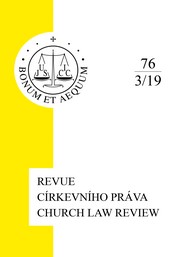
Interview with Military Chaplain in Reserve Captain Mgr. Jakub Holík. Interview conducted by Štěpán Tretera
More...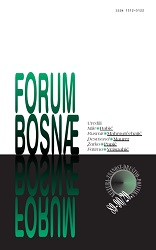
U ovom radu želim izložiti kako je bosanski franjevac Juraj Dragišić (1444–1520), izbjeglica i prognanik iz Bosne, za vrijeme svoga cijeloga života branio izbjegle i progonjene, a to je činio odlučno i neustrašivo. Branio je kardinala Bessariona, Židove koji su doseljavali u Firencu, židovske knjige (zapravo, branitelja njihovih knjiga, glasovitoga njemačkog humanista i hebraista Johannesa Reuchlina), Giovannija Pica della Mirandolu (jednoga od najučenijih renesansnih filozofa i osumnjičenika za herezu) i Girolama Savonarolu (velikoga reformatora Katoličke Crkve, koji je također bio optužen za herezu). Iz Dragišićeva angažmana za izbjegle i progonjene zaključujem da je on bio vrhunski kršćanski humanist, čiji je sav život ispunjen temeljnim evanđeoskim principom što ga je formulirao Isus Krist: “Zaista, kažem vam, što god učiniste jednom od ove moje najmanje braće, meni učiniste!” (Mt 25, 40) A upravo se ovom rečenicom izražava vrhunac kršćanskoga humanizma. Prije pristupa temi valja sažeto predstaviti Dragišićev život i njegovo djelovanje.
More...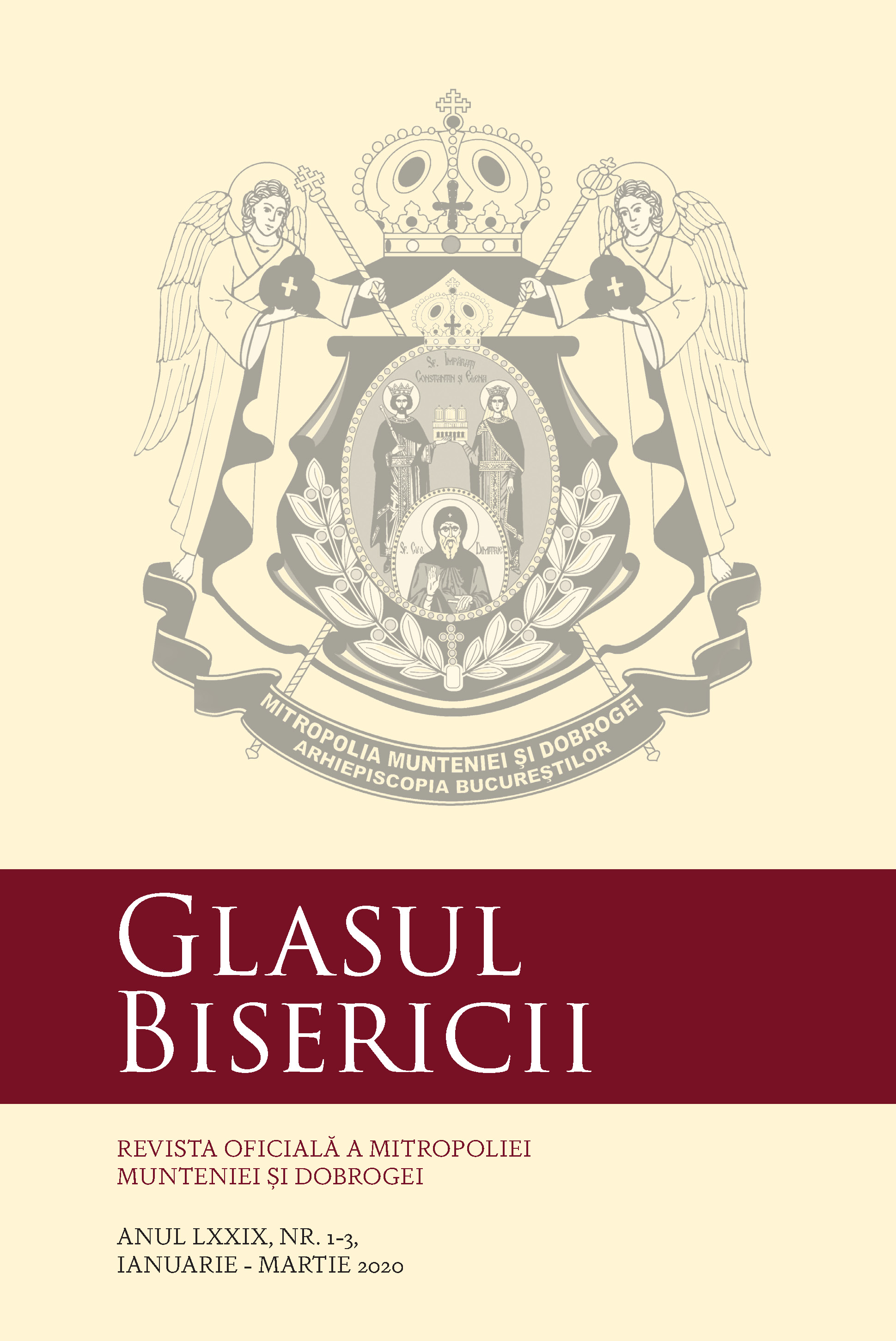
The article discusses the problem of digital addiction, encountered especially among young people. Towards such behaviour, morale and Christian spirituality proposes a control over the time spent in the virtual space and on the accessed contents, which is a proof of digital discernment. The Christian faith wants man to not dependent on any form of material and ephemeral pleasure, but to live spiritually free, in the Truth.
More...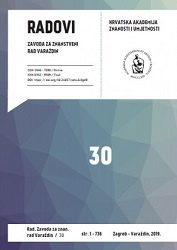
In this article, the author analyzes personal names of the parish of Kneginec from its foundation 1789 to 1900, based on available registers of baptisms. Determines the fund and the number of male and female names separately and tries to determine the motivation for choosing individual names. Points to the importance of the diversity of the name fund of a rural parish community. He also listed the most numerous personal names and hypocoristic forms. As a contribution to the article, author presents two tables which contains all recorded personal names of the parish (and their derivatives) grouped by gender, alphabetically sorted with the year of their first mention and their relative shares.
More...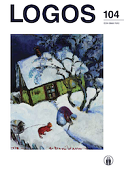
The article examines post-baptismal catechumenate as a pastoral institution that was developed after Second Vatican Council. It explores post-baptismal catechumenate’s relationship to baptismal catechumenate as it existed in the early Church and was restored by Vatican II. The article discusses post-baptismal catechumenate as part of the Church’s attempts to find solution to the problem of “baptised unbelievers” that occurred in the second part of the 20th century. It analyses the magisterial texts that address relationship between valid sacraments and their spiritual consequences. Finally, the article shows ambiguity of the concept of post-baptismal catechumenate in the documents of the Catholic magisterium.
More...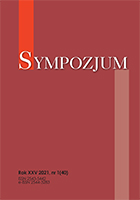
The Christian East is extremely diverse. Some Churches of the Christian East have developed extensive iconographic art along with the theory of this art, while others have not. The Church of Constantinople developed patterns in the field of iconography, including Marian iconography. Byzantine Marian icons can be divided into four groups: (1) Marian feasts; (2) theological icons; (3) symbolic icons; (4) liturgical icons. A characteristic feature of theological icons is the focus on the close relationship between Mary and Christ (God). These icons include the types: Kyriotissa, Hodegetria, Eleusa, Platytera. These are the most important basic icons of Mary discussed in the article.
More...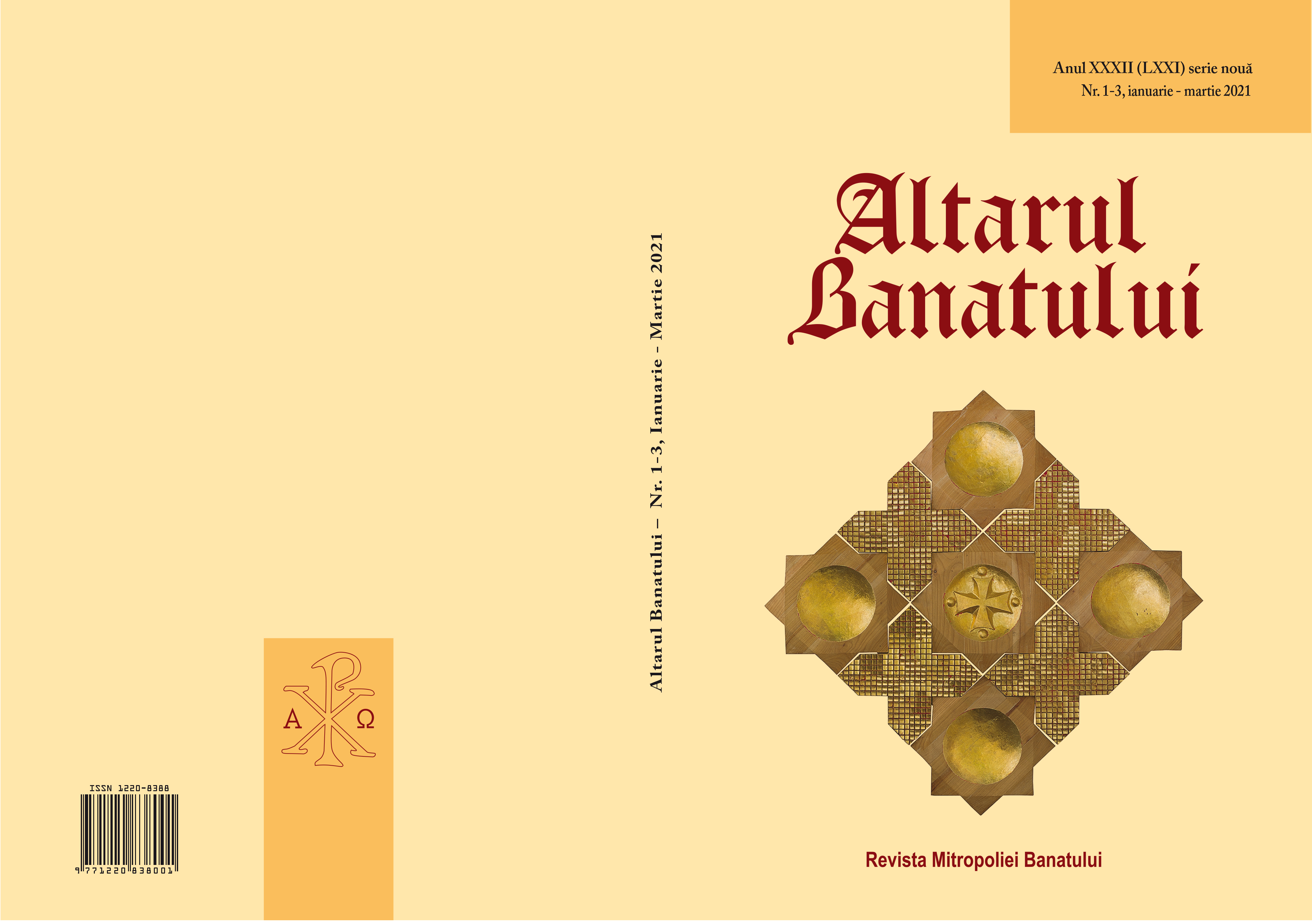
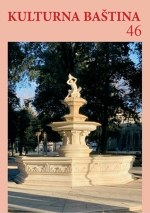
The aim of this paper is to present the Library of the Franciscan Monastery in Sinj as yet another cultural heritage institution which not only represents the heritage value of the Franciscan Monastery in Sinj, the town of Sinj and the Cetina River region, but also the wider Croatian public. The paper analyses the needs and the circumstances in which the library was established and developed, the reasons behind the development and the impact it has had on the region. Was the only purpose of the library to provide support to pastoral and liturgical activities? The library is the part of a large group of heritage institutions throughout the Republic of Croatia where valuable library material, incunabula, manuscripts and the latest book editions are kept. These institutions face the same issues and challenges as many other libraries of the same type. The monastery library holds diverse library material. It is home to over eighty thousand books, a collection of incunabula, around four hundred and fifty periodical publications, the Croatica Collection, music collections, maps and atlases which are mostly used for educational purposes as well as a large number of manuscripts and archive material. The overview of the history of inception and establishment of the library in 1687 and the connection with the monastery is based on written sources about the library and those found in the library, on the examination of in-situ material (in-house material) as well as on the information that the late friar Josip Ante Soldo, a long-time librarian, and friar Mirko Marić, the current manager of the library, obtained by word-of-mouth. The lack of storage space, which is indeed below the prescribed standards valid in the 20th century, required the material (mostly books) to be stored in boxes which made the numerous material unavailable. Individual Franciscan monks are responsible for the preservation of the rich library holdings for three centuries because they took care of the library and procured the material depending on the circumstances and needs. Thus, they have contributed to the preservation of the partly damaged but valuable library heritage to this day. The Franciscan monks of Sinj played an important role in the development of culture and education in Sinj and the Cetina River region. During the Croatian National Revival, in 1854, they opened the first grammar school in Croatian language in Dalmatia. In 1867, together with other supporters of the Revival movement, they opened the Public Reading Room of Cetina Region within the premises of the monastery which had no connection to the monastery library. The literature which deals with the history and the material of the Library of the Franciscan Monastery in Sinj is scarce. The largest number of data was collected upon the examination of the holdings, various book indexes, catalogues and manuscripts kept in the library.
More...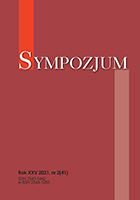

Report from the scientific symposium In the service of life and love, Krakow, October 28th, 2021
More...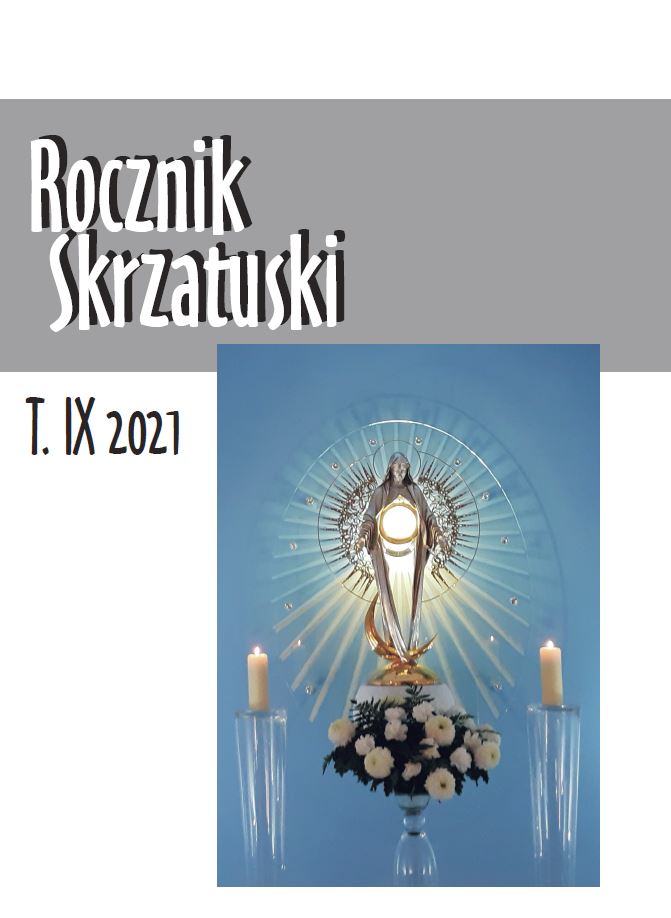
The press, as a medium of mass communication of news and specific ideological and educational content, was to raise the level of social awareness of the population, its culture and knowledge, including religion and the Catholic Church, in the spirit of the prevailing ideology. The image of the Holy See and the popes from 1972–1989 emerging from the texts under discussion shows these entities as political institutions. At that time, words were selected, quoted and even paraphrased in press articles from the public appearances of popes and representatives of the Roman Curia so that they were consistent with the views of the Polish United Workers’ Party or served its propaganda. At the level of the highest hierarchy in particular, allies were perceived, and attempts were also made to present them in this way. An analysis of the texts devoted to the Church showed that the Church was treated as too serious and independent a force to openly criticize it. Therefore, especially in the 1980s, the perspective of dialogue with the Church was adopted. In criticism, the Church was sometimes presented in opposition to the communist state, and this concerned, inter alia, hierarchy of values, social rights, references to countries with other political systems.
More...
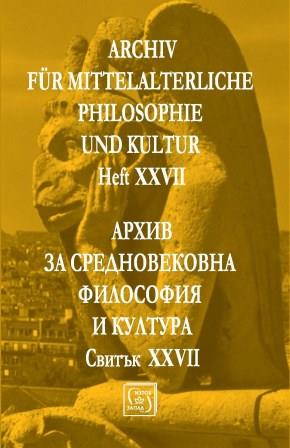
The article focuses on the Christological foundations of the problem of will, as they are set out mainly in the theological and polemical works of St. Maximus the Confessor and the Dispute with Pyrrhus. The doctrine of will is considered, marking the contribution of St. Maximus in the development and finalization of the Chalcedonian Christological concept. In the context of this exposition, various scientific interpretations are presented as to whether there is a change in his position on the question of the existence of a gnomic will in Christ and the development of his doctrine of one action, concluding that the Venerable does not essentially change positions. The historical ground and preconditions for the emergence of the Monothelite doctrine and its organic connection with the Monophysite theology are outlined. In conclusion, the problem of the deification of the human will, as a consequence of the perichoresis of nature in the Person of the Savior and his eschatological dimensions, is considered.
More...